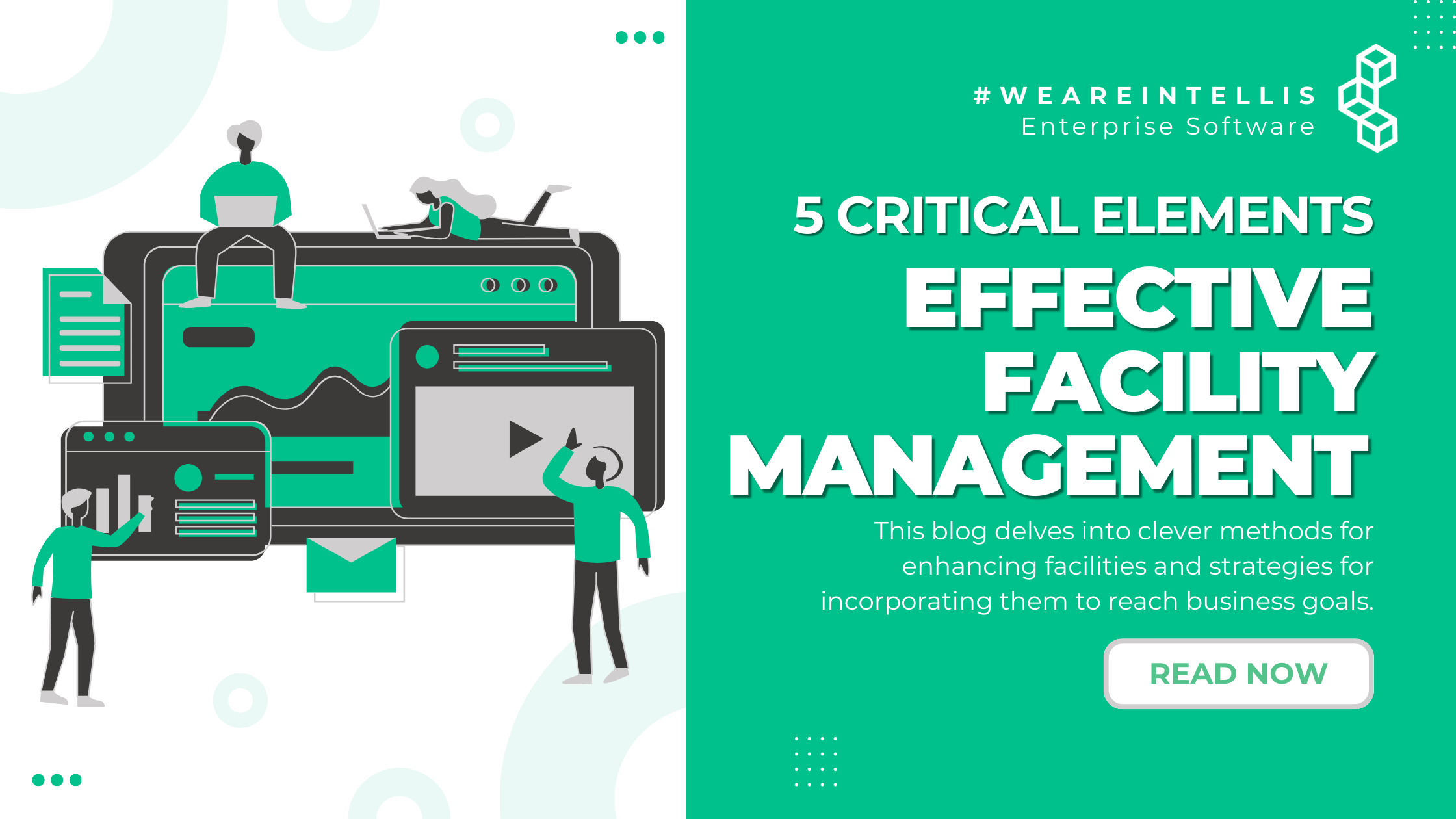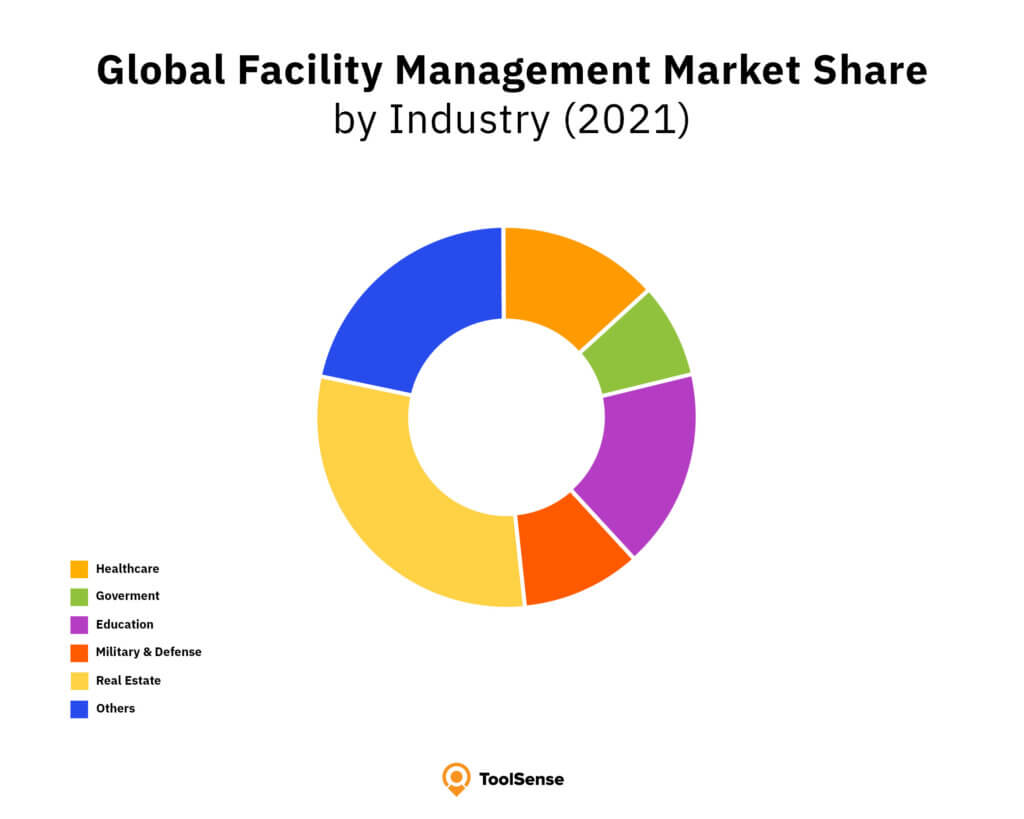The Role of Facility Management in Sustainable Operations
The Role of Facility Management in Sustainable Operations
Blog Article
Key Patterns Shaping the Future of Facility Management in 2024
As we look ahead to 2024, the landscape of center monitoring is positioned for substantial makeover, driven by several vital patterns. The assimilation of wise building innovations and a shift in the direction of data-driven decision-making assurance to improve functional efficiency while prioritizing sustainability in method.
Smart Structure Technologies

Smart structure innovations encompass a large range of systems, including intelligent illumination, heating and cooling controls, and security systems. By integrating these systems, center managers can monitor and adjust parameters in real-time, causing considerable decreases in energy waste and functional costs. For example, wise sensors can detect occupancy levels and change lights and temperature accordingly, making certain that energy is just utilized when required.
In addition, these technologies help with boosted information collection, enabling organizations to track use patterns and recognize opportunities for more renovations. The application of smart structure innovations not only adds to sustainability objectives but also creates much healthier work environments that can increase staff member productivity and satisfaction.
As we move right into 2024, the fostering of wise building innovations will likely speed up, mirroring a wider change towards even more smart, receptive, and sustainable facility management methods.
Data-Driven Decision Making
Significantly, companies are leveraging data-driven choice making to boost center management practices. By using information analytics, facility supervisors can derive actionable understandings that significantly enhance functional effectiveness and source appropriation. The combination of advanced modern technologies, such as IoT sensors and real-time surveillance systems, allows the collection of large amounts of information on building efficiency, tenancy rates, and power intake.
This wide range of information allows facility managers to identify patterns, anticipate upkeep needs, and proactively address concerns before they rise. As an example, predictive analytics can anticipate devices failings, minimizing downtime and repair prices. Additionally, data visualization devices promote better communication among stakeholders, making certain that educated decisions are made collaboratively.
In addition, data-driven approaches enhance strategic preparation by allowing facility supervisors to assess the performance of existing practices and make informed selections concerning investments in innovation or facilities. As organizations significantly prioritize operational excellence, data-driven decision production is poised to end up being a cornerstone of successful facility administration approaches in 2024 and beyond. Ultimately, the capability to utilize information efficiently will equip organizations to produce much more efficient, productive, and resistant centers.
Sustainability and Eco-friendly Practices
The focus on data-driven choice making naturally lines up with the growing emphasis on sustainability and eco-friendly practices within facility monitoring. As companies progressively focus on environmental duty, center managers are leveraging analytics to maximize resource usage, decrease waste, and decrease carbon footprints. This calculated strategy makes it possible for the integration of energy-efficient systems, such as LED illumination, wise a/c controls, and sustainable energy resources right into center procedures.
Moreover, the execution of sustainable practices prolongs past power intake. Center managers are taking on environmentally friendly materials and promoting recycling campaigns to create a round economic situation within their centers. This not look at this now just boosts the ecological account of the company but likewise fosters a culture of sustainability amongst staff members.
Conformity with ecological laws is an additional crucial facet driving the fostering of eco-friendly techniques. By using information analytics, center supervisors can keep an eye on compliance metrics and recognize areas for improvement, ensuring adherence to worldwide and local my explanation sustainability standards.
Hybrid Work Designs
A considerable shift in the direction of crossbreed work models is reshaping the landscape of center management in 2024. This standard combines in-office and remote work, necessitating a reevaluation of area application, resource appropriation, and worker engagement approaches. Organizations are significantly identifying the relevance of versatile workspaces that satisfy varied requirements and preferences.
Facility supervisors need to adapt by carrying out functional office designs that support collaborative efforts while supplying areas for focused work. This includes the integration of technology to assist in seamless communication and collaboration among in-office and remote staff members. Smart structure solutions, furnished with sensors and analytics, enable for real-time monitoring of room use, allowing companies to enhance their atmospheres efficiently.
In addition, crossbreed job versions stress the demand for reliable center monitoring that focuses on worker experience. In significance, the hybrid work model is transforming facility management, urging an aggressive strategy to satisfy the progressing demands of the workforce.
Enhanced Occupant Health
As companies accept hybrid work versions, an enhanced emphasis on resident wellness is coming to be important to facility management approaches. Facility Management. This change acknowledges that a healthy and completely satisfied workforce straight affects efficiency and retention rates. Center supervisors are now prioritizing settings that promote mental and physical wellness, integrating components such as natural lighting, biophilic design, and easily accessible wellness resources

Innovation plays a crucial role in this development. Smart structure systems can keep an eye on ecological aspects and readjust setups in real-time, making sure ideal comfort levels - Facility Management. Additionally, comments mechanisms, Extra resources such as occupancy sensing units and staff member studies, enable facility managers to consistently improve wellness campaigns based upon passenger demands.

Conclusion
In 2024, the future of center management will certainly be significantly influenced by the assimilation of smart structure technologies and data-driven decision-making, promoting enhanced functional efficiency. Sustainability efforts will certainly focus on environmentally friendly techniques, while the emergence of hybrid job models will require adaptable office designs. Moreover, an enhanced concentrate on occupant health via advanced a/c systems and biophilic layout will certainly contribute to healthier workplace. These fads jointly underscore the evolving landscape of facility management in reaction to contemporary difficulties and chances.
Facility managers are adopting environmentally friendly materials and promoting recycling initiatives to develop a round economic climate within their facilities.A significant change in the direction of hybrid work versions is reshaping the landscape of facility monitoring in 2024.In addition, crossbreed work versions highlight the need for effective center administration that prioritizes worker experience.As organizations welcome hybrid job models, an enhanced emphasis on occupant health is ending up being integral to center administration strategies.In 2024, the future of center administration will certainly be substantially influenced by the assimilation of wise structure innovations and data-driven decision-making, fostering boosted operational performance.
Report this page